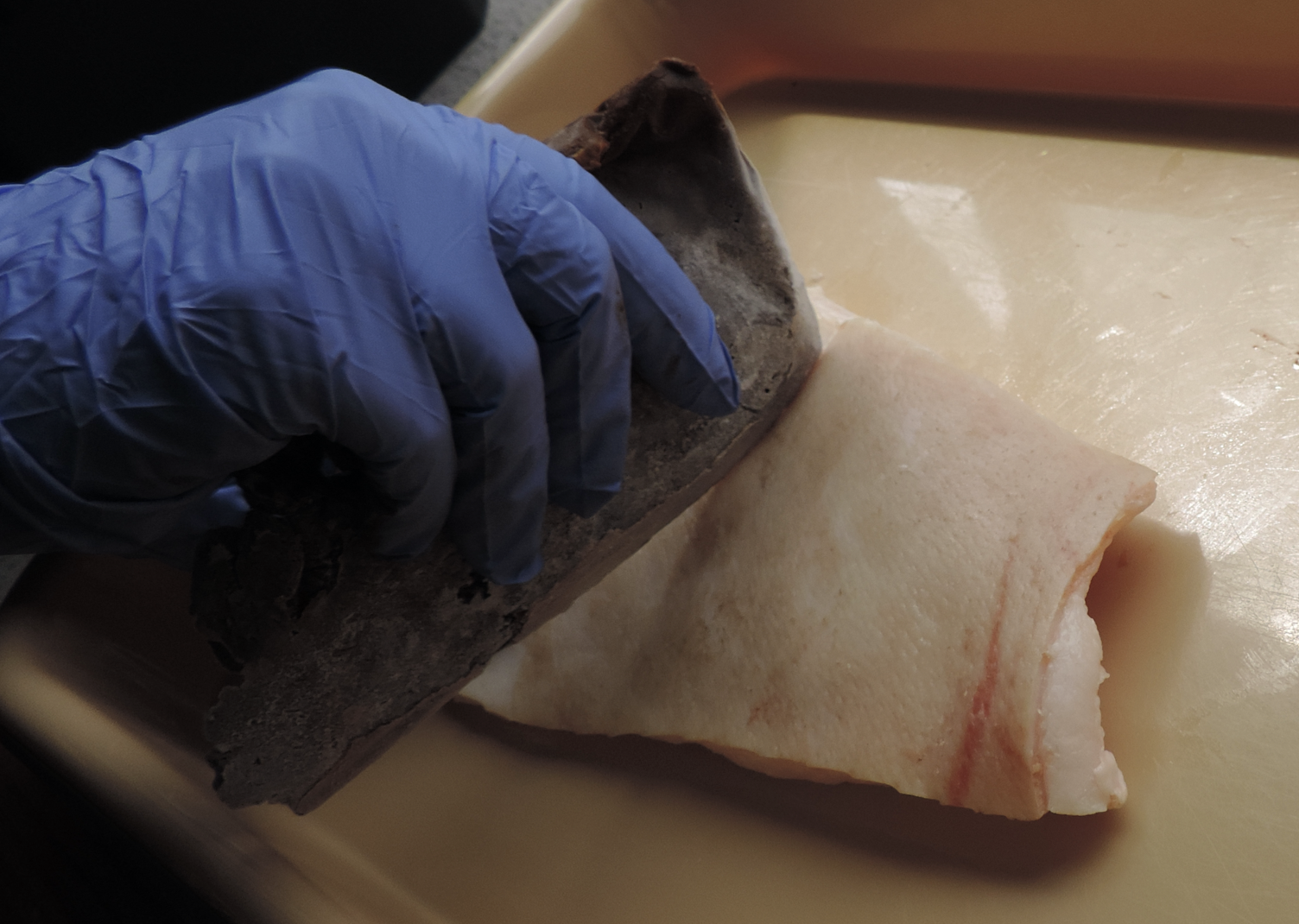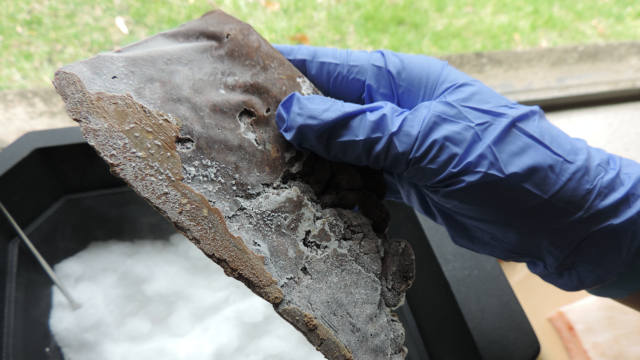The winners of the 2020 Ig Nobel Prizes have been announced, and the honoured experiments include frozen knives made from poop, an alligator forced to inhale helium, and vibrating earthworms. This annual contest highlights achievements that make “people laugh, then think.”
The 30th Ig Nobel Prize ceremony was held online this year due to covid-19. Normally, these prizes, awarded by the satirical humour magazine Annals of Improbable Research, are handed out at a live event held at Harvard University. Global pandemic or not, the 2020 Ig Nobels still managed to celebrate the quirkier side of scientific research.
Experimental archaeologist Metin Eren and his colleagues from Kent State University were awarded the Materials Science Prize for manufacturing knives made from frozen poop.
The experiment was prompted by an ethnographic account of an Inuit man in Canada who claimed to have fashioned a knife made from his own faeces. Eren’s team at the university’s Experimental Archaeology Lab decided to put this claim to the test, so they manufactured their own frozen poop knives — which they did using poop supplied by team members, Eren included. Unshockingly, the poopy knives didn’t work (the knife-edge blade “quickly melted and deteriorated,” according to the research), casting the ethnographic account into doubt.

Speaking to me by phone, Eren said he was “pretty excited” about winning the award. That his team might win an Ig Nobel prize crossed his mind during the frozen poop experiment, he admitted. Back in 2003, he and sister actually attended the Ig Nobel award ceremony at Harvard University.
“We knew this was a possibility,” said Eren. “We were very conscious of that fact.”
The Ig Nobels are “really important,” he added, because, in addition to promoting critical thinking, they “illustrate an important tool that humans have to do good and cause societal change — that tool being humour,” he said. The Ig Nobels provide a nice relief from outrage, another useful tool, said Eren.
Eren described the poop research as a “humorous rallying cry for demonstrating the importance of evidence and fact checking,” which he said is increasingly critical in this day and age.
As a fun aside, I actually got a chance to hold these poop blades. Last year, Gizmodo, along with Atlas Obscura, produced a video about Kent State’s Experimental Archaeology Lab, which includes a short clip about the frozen poop knives.
Another winner was a paper co-authored by Stephan Reber from the University of Vienna, granted the Acoustics Prize. The team placed an alligator into a helium-filled chamber to study potential changes in its ability to produce sounds. The point of this strange experiment was to determine if crocodilians and other reptiles can convey their size through their vocalisations. The helium affected the gator’s vocalisations in the expected way (higher pitch), but the authors aren’t sure if this actually communicates size to potential mates.
The Psychology Prize went to a group of American and Canadian researchers for developing a method to identify narcissists by looking at their eyebrows. A team led by Ivan Maksymov from the Swinburne University of Technology got the Physics Prize for vibrating earthworms at high frequencies to measure potential changes in their shapes.
Richard Vetter from the University of California, Riverside, won the Entomology Prize for showing that entomologists are actually afraid of spiders. I don’t know if that’s appropriate, ironic, or simply strange, given that entomologists study insects, which spiders are not. Vetter’s paper has a great title, though: “Arachnophobic Entomologists: When Two More Legs Makes a Big Difference.”
A very sarcastic Ig Nobel for Medical Education was granted to several world leaders, including U.S. president Donald Trump, Brazilian president Jair Bolsonaro, U.K. prime minister Boris Johnson, and Belarusian president Alexander Lukashenko, among others. They were given the award for “using the Covid-19 viral pandemic to teach the world that politicians can have a more immediate effect on life and death than scientists and doctors can.” Yikes.
Other winners of the 2020 Ig Nobel Prizes can be found at the Improbable Research website.
